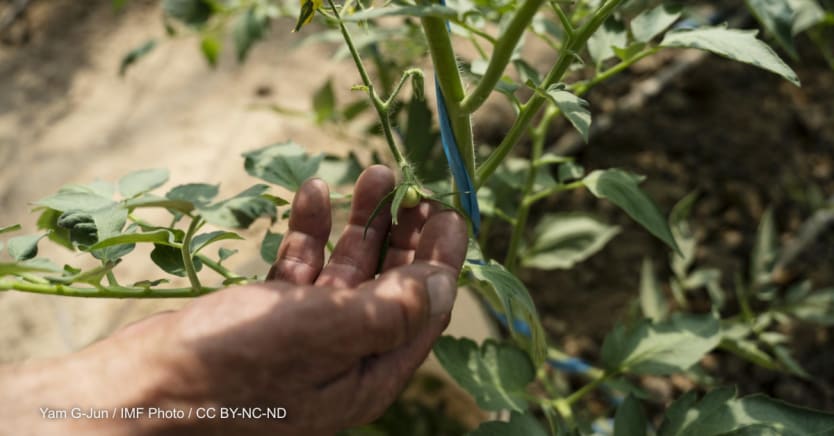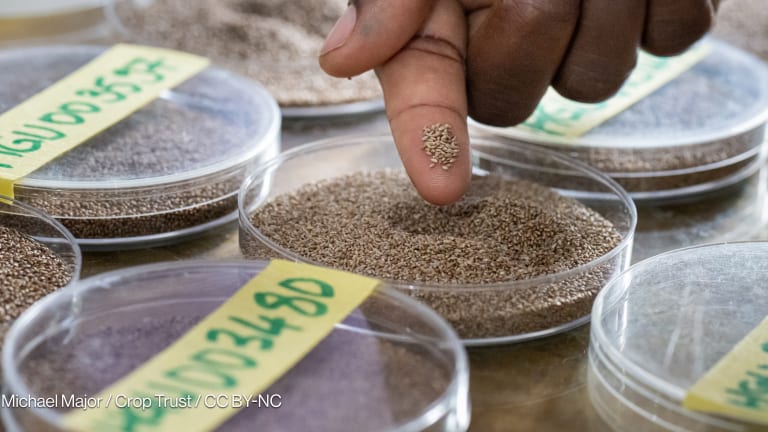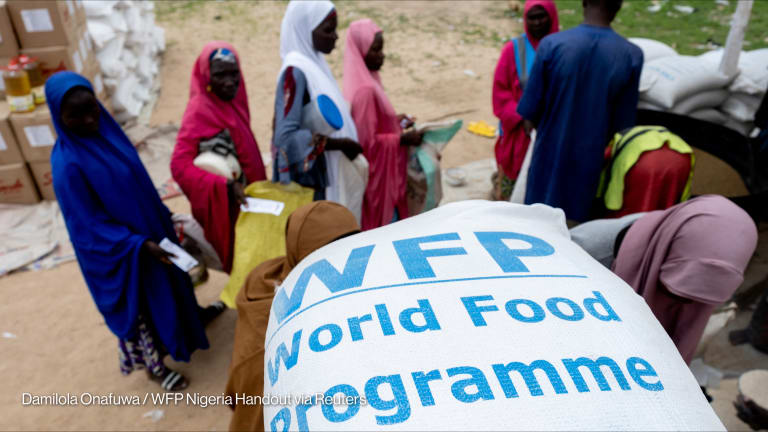Opinion: If COP 27 ignores farmers, global food security will suffer

We are already living in a world that is 1.2 degrees Celsius warmer than pre-industrial times, with the science unequivocal that this warming has been caused by human activity. The consequences are plain to see: East Africa is being ravaged by the worst droughts in 40 years, southern Africa was hit by three cyclones and two tropical storms within six weeks, and the recent floods in Pakistan were made 50% more likely by climate change.
Beyond their human toll, each of these disasters devastated local crops and food supplies, disrupting production cycles with long-term impacts on natural resources and means of production, putting lives and livelihoods at risk long after the initial shock.
With smallholder farmers producing around a third of the world’s food, the growing frequency of climate disasters such as these has considerable implications for global food security. There is an urgent need to support communities — and the farmers who feed them — who are hit hardest and fastest by climate change.
To address the interlinked climate and food crises, leaders during the second week of the 27th United Nations climate summit must deliver for smallholder farmers by focusing on three critical areas.
A framework
First, we need a global framework to protect communities already affected and support them to adapt to climate change.
The Paris Agreement set a high-level goal of helping communities adapt to climate change, but clear metrics to measure progress toward the goal have not yet materialized. That’s partly because building resilience is highly localized, difficult to measure, and varied across sectors.
Global leaders have an opportunity to unlock a solution. Building on the precedent of the Sustainable Development Goals, which include 231 indicators, the U.N.’s Race to Resilience has developed a framework for a global goal on adaptation that includes metrics covering vulnerability, exposure, risk, and resilience to climate change. It enables countries and communities to adopt the targets that meet their needs.
By endorsing this framework, global leaders can take a critical first step in mobilizing the resources and political will to help communities on the front lines of the climate crisis adapt.
Financing
Second, leaders must focus on financing. The sheer pace and impact of climate-related disasters in the last few years have shown what low- and middle-income country governments have been warning for a long time: Those who have contributed least to climate change — and have the most limited resources to cope with it — are bearing the brunt of its impact.
New U.N. Environment Programme data reveals that global adaptation financing flows to LMICs countries are five to 10 times below estimated needs, and the gap is widening.
Financing must be prioritized in the most climate-exposed and vulnerable sectors, such as agriculture, at the forefront of climate impacts. Investing in agroecological approaches and climate-smart agriculture addresses both adaptation and mitigation while conserving land, water, and ecosystems critical for resilience, and paying close attention to root causes of vulnerabilities.
Such investments do double duty in addressing the climate and food crises: Agriculture and food systems currently account for almost a third of human-made greenhouse gasses, but with the right investment they could be transformed into carbon sinks. Agrifood systems should be at the center of climate solutions.
Investment should support innovation in the sector. This will be crucial in lowering emissions across agriculture and food systems, developing drought and flood-resistant seed varieties, pioneering micro-irrigation technologies and water harvesting techniques and restoring degraded and damaged ecosystems. It could back the development and rollout of early flood and drought warning systems, index-based insurance, or training and capacity-building activities that help communities adapt better to climate change.
Implementation
Finally, beyond financing, COP 27 must deliver on implementation, including policy support for low-income countries. Leaders must agree to establish a mechanism to monitor and take action to promote climate-resilient agrifood systems.
Deepening the mandate of the Koronivia Joint Work on Agriculture, which was established at COP 23 in 2017, could support countries with agriculture-related components of setting national adaptation plans and reducing emissions.
Together, these three elements — a global adaptation framework with metrics, financing, and implementation — provide the essential scaffolding for governments to protect their most vulnerable communities, especially smallholder farmers.
The near-daily evidence of the impacts of climate change on communities reminds us that the climate crisis is already upon us. We risk losing more lives, deepening poverty, and entrenching inequalities if the global community does not take action to set and achieve targets and invest in adaptation to make communities and farmers more resilient to climate change. Global leaders will have a chance to do just that now at COP 27.

Search for articles
Most Read
- 1
- 2
- 3
- 4
- 5









